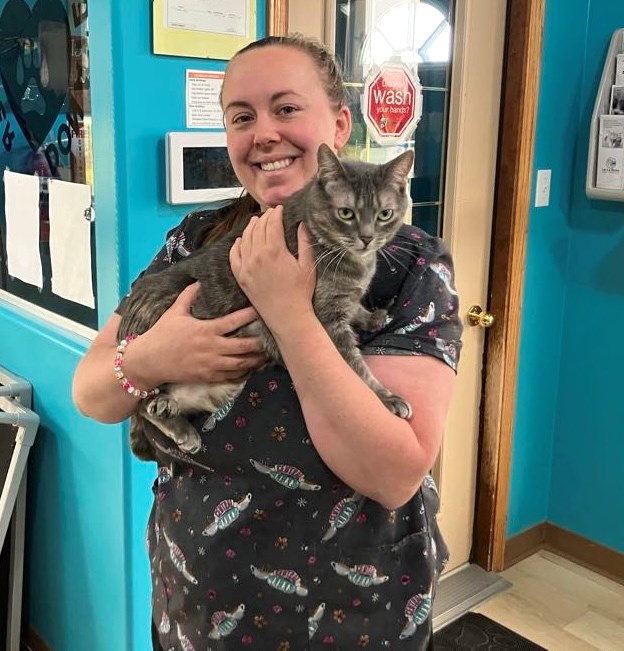LAC LA BICHE – Cats who have a difficult time getting adopted are still able to find loving fur-ever homes through the Lac La Biche Humane Society’s Barn Buddies program.
According to Jewels Hampshire, manager of the Lac La Biche Humane Society, the program is used by the shelter to help house feral and semi-feral cats, along with those who can’t use litter boxes.
The process for people to take in a cat through the Barn Buddies program, Hampshire explained, is the same as a normal cat adoption, which involves filling out a standard form. Instead of paying the normal rates for adoption a cat, participants give the Humane Society a donation of $50 or more.
“If we have cats that meet that description in shelter or in a foster, we will show them those cats, and then they can pick from there,” Hampshire told Lakeland This Week, adding that the program matches adult cats with people, and only kittens if they are feral.
Many folks who take care of feral and semi-feral cats through the Barn Buddies program, Hampshire said, have farms or acreages, and may also need help getting rid of mice and rodents.
The program, she said, is also good for people who have allergies and still want a pet but cannot have animals inside of their homes.
In order to be accepted, applicants are required to have a heat source in the building where cats will be living, provide veterinarian care and food. Owners must also show attention and love to these animals, talk to them, and check up on them daily.
“It’s not just I have a cat, put it outside,” Hampshire stated.
When asked about feral cats, Hampshire explained that quite a few of those animals who are born in the wild will become feral. Cats who are in this state, she continued, can’t be touched, picked up or petted like a normal household cat.
“They will be aggressive, or extremely timid…they’ll run away as soon as they see you,” she said.
The Barn Buddies program, Hampshire said, has been beneficial to feral and semi-feral cats who arrive at the Lac La Biche Regional Humane Society and stay there as residents while staff try to find a place for them to live.
“It gives them full access to food, water, medical attention that they wouldn’t get on their own,” she said. “Some people still put a litter box out for them to use, but it’s okay if they don’t use it because they just go outside.”


